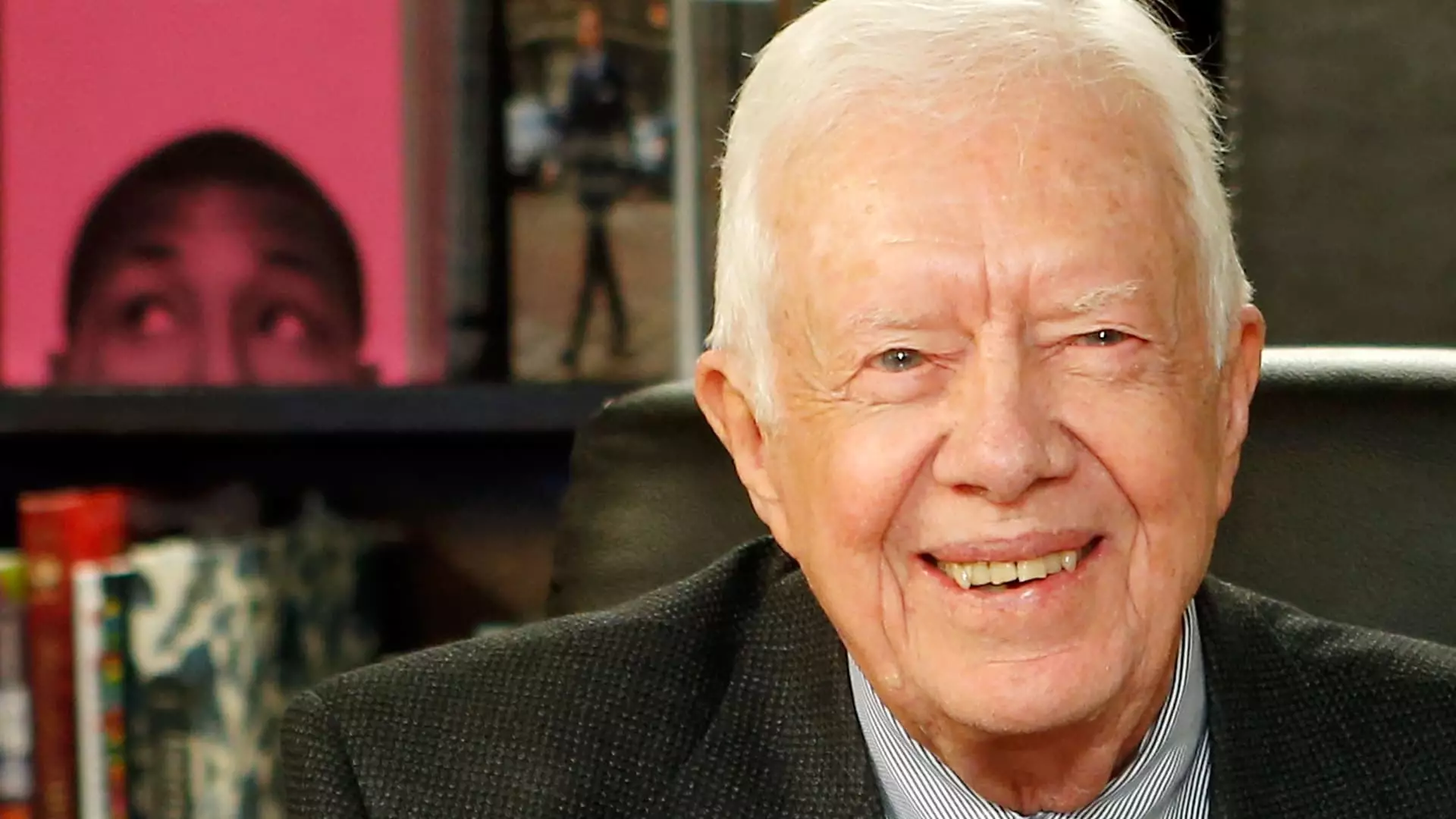The life and presidency of Jimmy Carter stand as a testament to the complexities of American leadership during a turbulent time. Elected as the 39th president of the United States, Carter’s journey began long before he took the national stage. With roots in rural Georgia, he won the Democratic National Convention’s nomination in 1976, expressing a vision of integrity and humanitarianism. His presidency, often overshadowed by challenges, has seen a resurgence of appreciation in recent years, as many reflect on his accomplishments and values against the backdrop of contemporary issues.
Carter’s story is rooted in his modest upbringing as the son of a peanut farmer. These early experiences shaped his views on hard work, community service, and commitment to social justice. His long-standing dedication to public service found expression in his administration, where he emphasized moral responsibility and human rights. “Because we are free we can never be indifferent to the fate of freedom elsewhere,” he stated in his inaugural address, encapsulating his belief that the United States should advocate for individual rights worldwide.
Carter’s presidency saw a particular focus on energy conservation as a moral imperative, an issue he identified as a test of American character. His comparison of the energy crisis to a war underscored the gravity of the situation and his determination to unite the nation in confronting it. Despite the political backlash and economic challenges that ensued, his commitment to these principles marked his time in office as more than just political rhetoric; they reflected a deep-seated ethos of responsibility and change.
One of Carter’s most enduring legacies is his dedication to fostering peace. His efforts in the Camp David Accords, which led to a peace treaty between Egypt and Israel, revealed his resolve to pursue diplomacy over military action. “I kept our country at peace, which has happened very rarely since the Second World War,” he reflected in a later interview, indicating that his pursuits were grounded in moral convictions rather than mere political strategy.
This moral compass was tested numerous times throughout his presidency, particularly with regard to Iran. Carter faced immense pressure to respond militarily during the Iranian hostage crisis. However, against the tide of popular opinion, he chose restraint, believing it would ultimately save lives. Carter’s decision-making during these moments serves as an illustrative example of his character—a leader prioritizing human rights over political expediency.
Carter’s commitment to human rights also extended beyond U.S. borders. His administration took a firm stance against totalitarian regimes and military dictatorships in Latin America. He viewed the promotion of democracy as a moral obligation, striving to create a more just global landscape. In his own words, he hoped to be remembered as “a champion of peace and human rights,” reflecting the dual pillars upon which he built his presidency.
After leaving office, Carter continued his humanitarian work through the Carter Center, focusing on global health, election monitoring, and conflict resolution. His ability to unite people and generate empathy through initiatives, such as combating diseases in developing nations, further illustrates that his influence was not confined to political office but expanded into global welfare.
Carter’s resilience in the face of personal challenges is remarkable. Even as he battled health issues in his later years, he maintained a positive outlook and remained active in his church and community. His statement, “I’ve had a wonderful life… an exciting and adventurous and gratifying existence,” showcases a profound sense of contentment that transcends mere achievements.
The political landscape has shifted dramatically since his presidency, but Carter has remained steadfast in his beliefs, advocating for peaceful resolution and civic unity amidst political strife. His reflections following the January 6 Capitol riots resonate with his lifelong dedication to democracy and healing.
Jimmy Carter’s life and presidency symbolize the potential of a leader grounded in morality and compassion. Through his unwavering commitment to peace, human rights, and ethical governance, he has left an indelible mark on American political history. As the world grapples with challenges akin to those faced during his presidency, Carter’s values continue to inspire new generations to strive for a more just and humane society. His legacy endures, demonstrating the profound impact of leadership rooted in empathy, diligence, and a commitment to the greater good.

